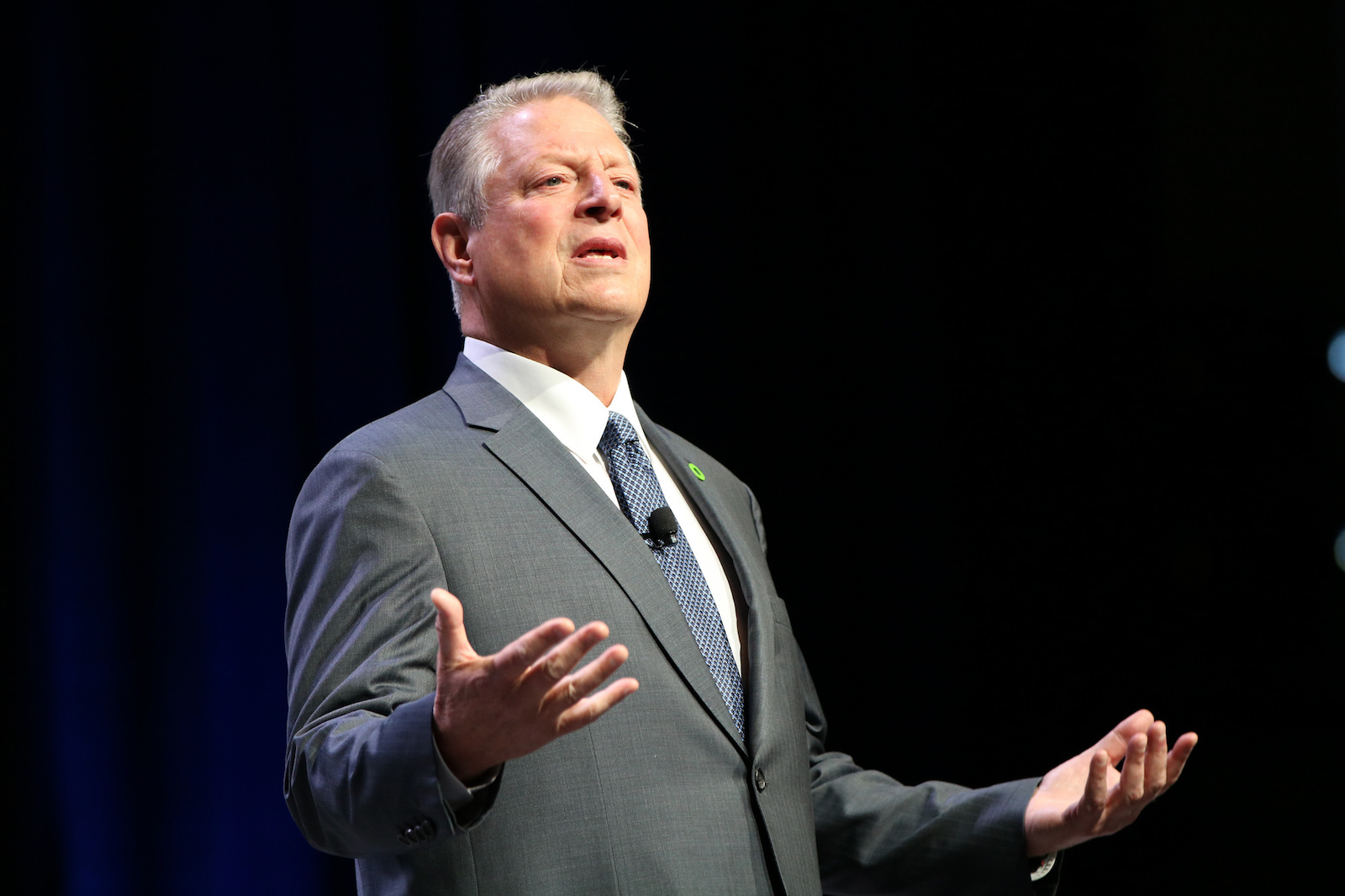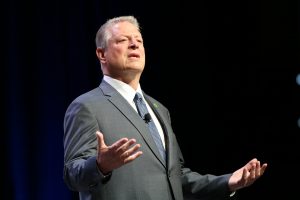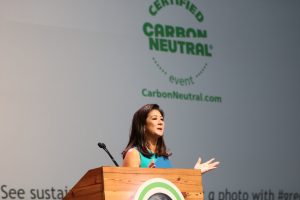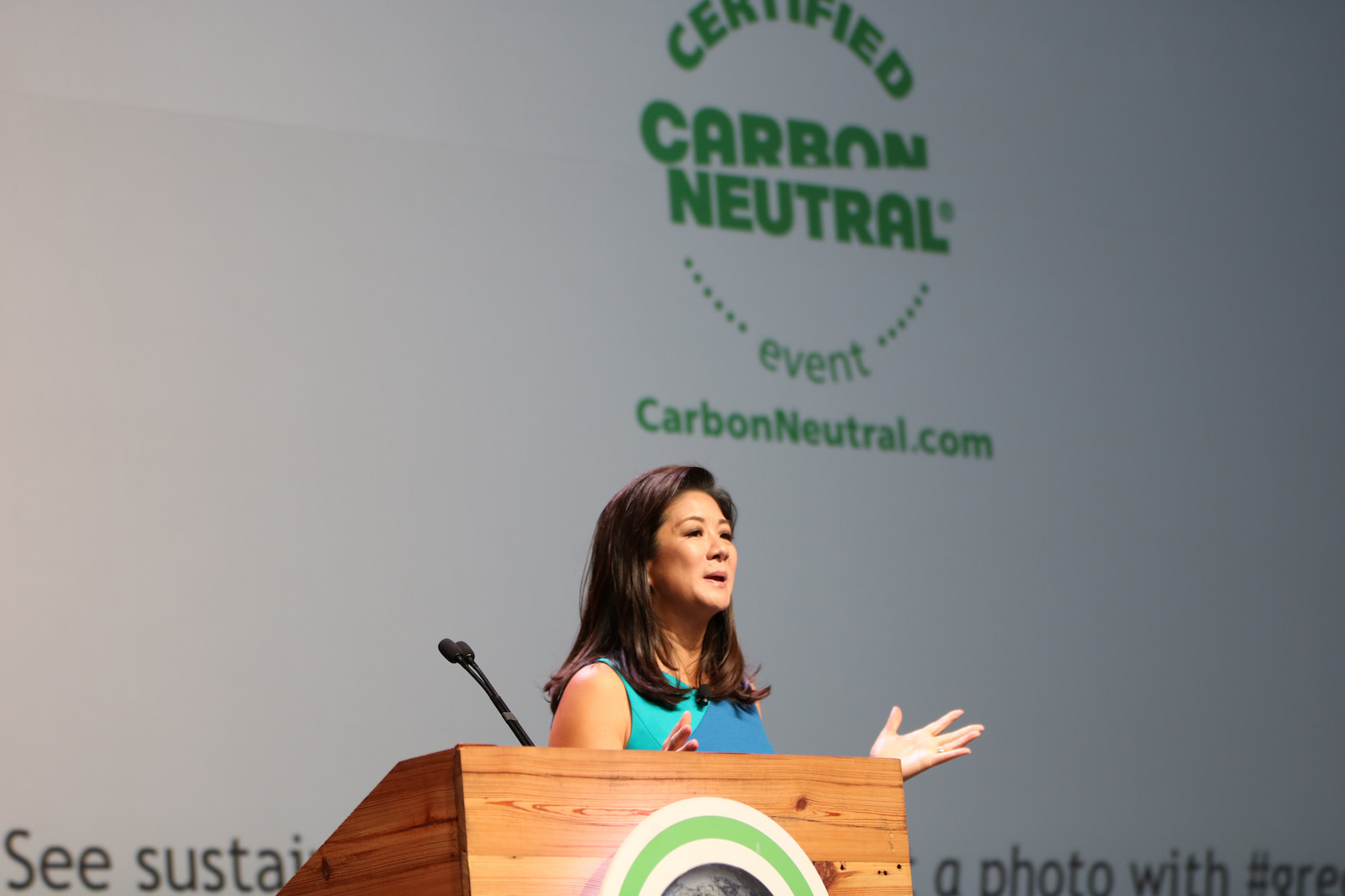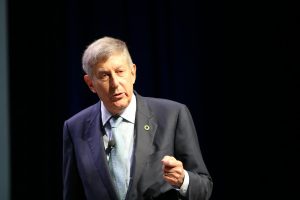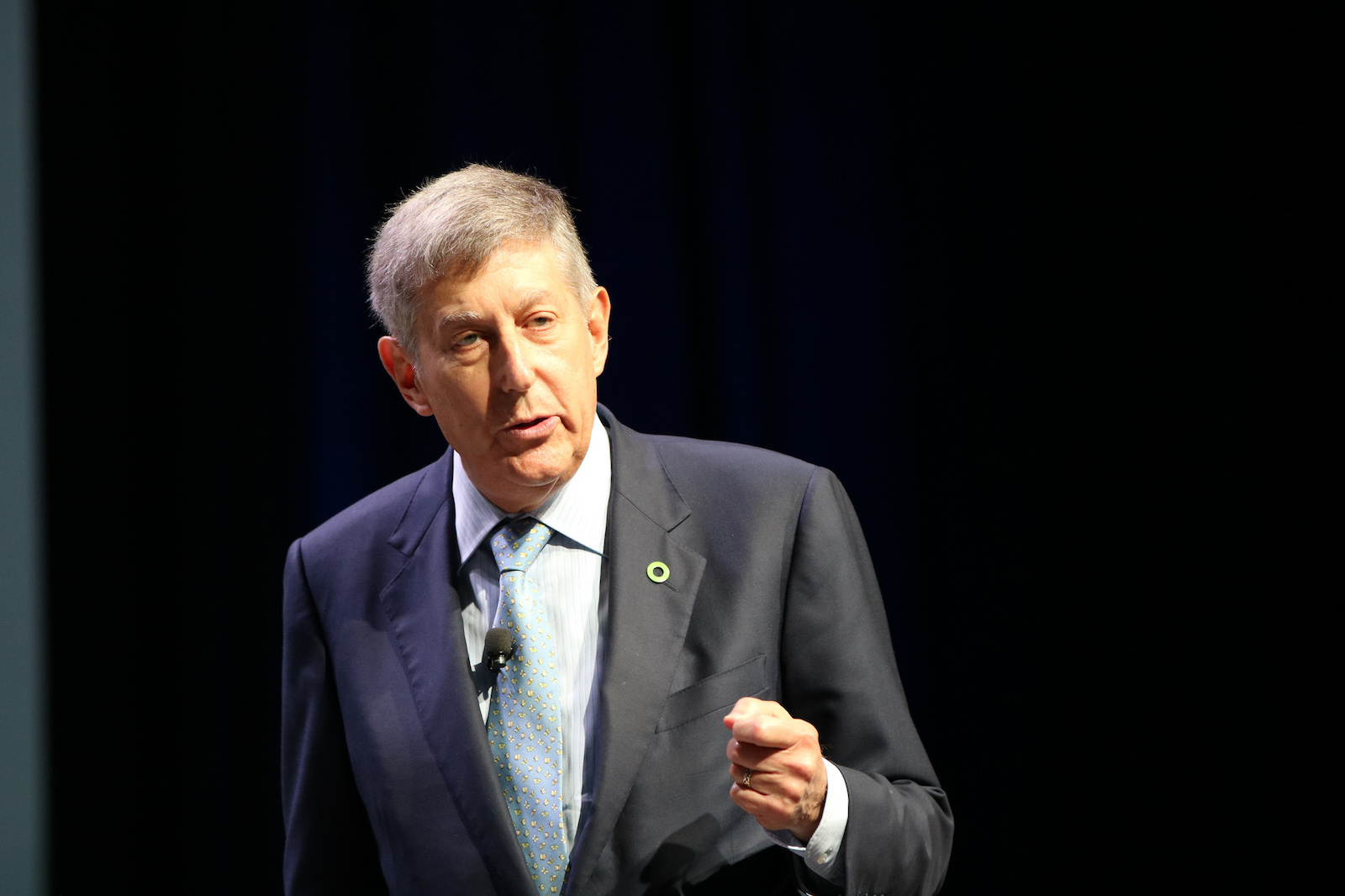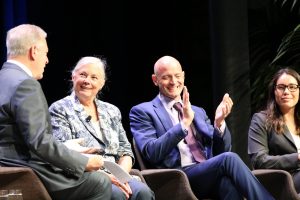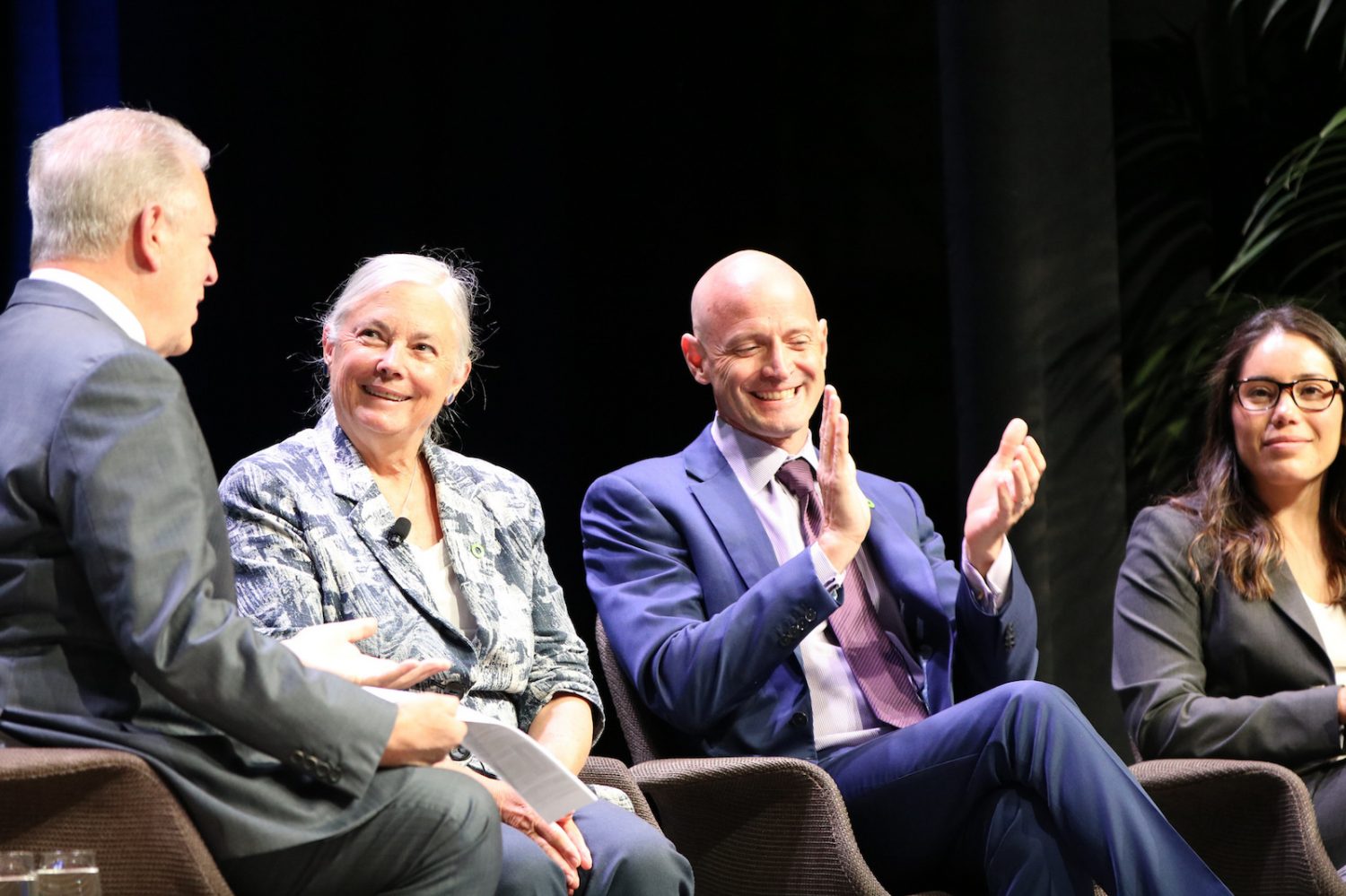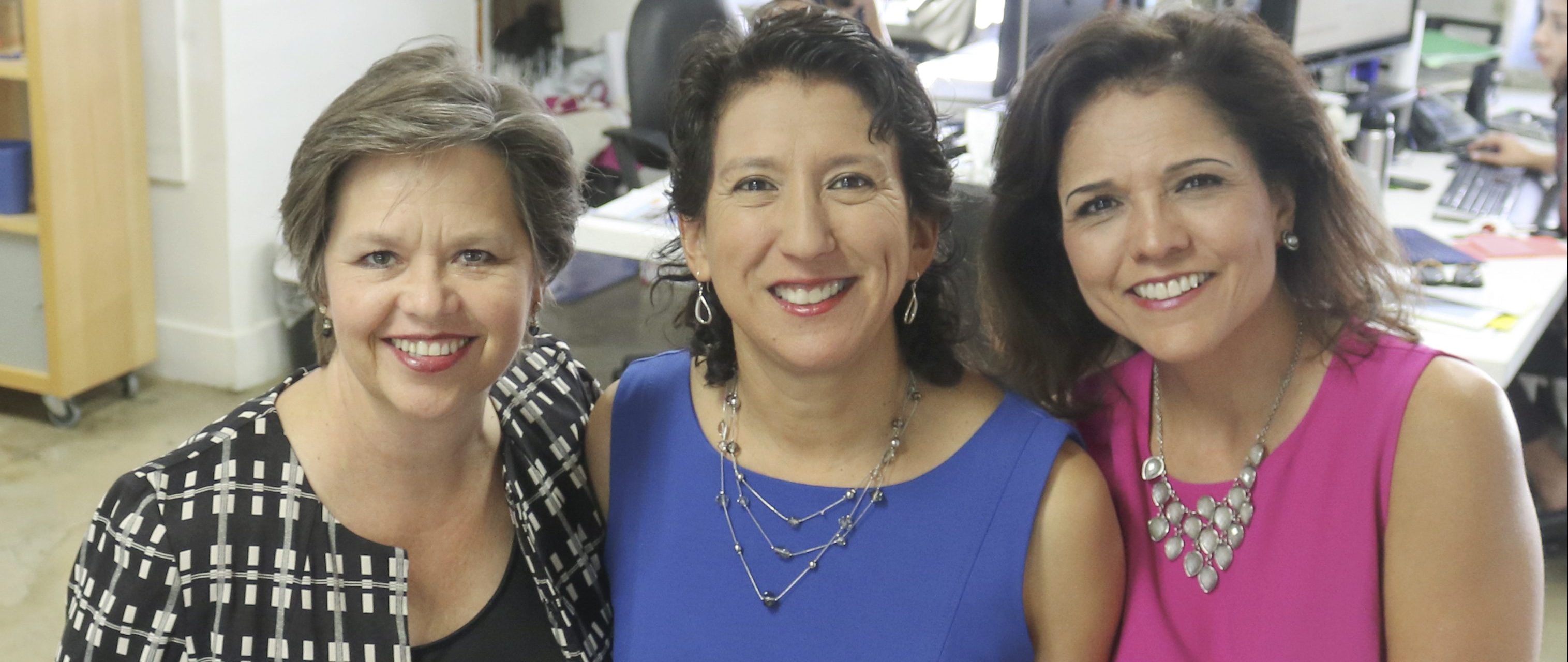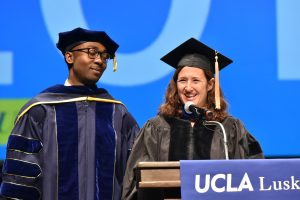By Les Dunseith
As television journalist Jorge Ramos prepared to leave the stage after his visit to UCLA on Oct. 9, dozens of UCLA students swarmed toward him.
They wanted to get closer to Ramos, an icon for many Latinos in the United States. Graciously, he motioned them forward, and soon he was surrounded on all sides by young admirers. Ramos then spent several minutes chatting with them and posing for selfies.
Kimberly Fabian is a sophomore pre-major in the undergraduate major in public affairs that launched this fall at the UCLA Luskin School of Public Affairs. She was among those grateful for the opportunity to engage directly with Ramos at the event, during which he was presented the UCLA Medal by Chancellor Gene Block.
“He is the face of Univision, and Univision is what everyone watches when you grow up in a Spanish-speaking household,” she said of Ramos, the longtime host of Univision Noticias’ evening news and its Sunday newsmagazine. “Even if you don’t know a lot about him or his politics, he is someone who has just always been there. It is a big deal to see him live when you are so used to seeing him on the screen.”
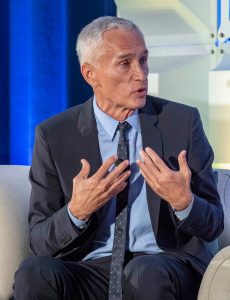
“Neutrality sometimes is not an option,” Univision’s Jorge Ramos tells a gathering of about 400 people at a lecture hosted by the UCLA Luskin School of Public Affairs. Read the story. Photo by Les Dunseith
Many other attendees shared Fabian’s sense of familiarity and excitement about Ramos, including Ricardo Aguilera, also a sophomore pre-major in public affairs. He said making time to attend the event was an easy decision.
“Jorge Ramos — he’s a big voice within the political community, within journalism, within advocacy,” he said. “To hear him talk, to hear that inspiration, to see what’s going on? Definitely. I signed up right away.”
UCLA Luskin graduate student Gabriela Solis had the opportunity to speak one-on-one with Ramos before the medal ceremony.
“I guess you never really know about people who get that much attention — how they are going to act or treat other people,” Solis said. “But he was so kind, very down-to-earth. … He has a nurturing presence about him that is really great.”
Solis found inspiration in Ramos’ words, particularly his call to action for students to speak up when they witness injustice or intolerance.
“As someone who is nearing graduation, I have had a lot of thoughts about what I need to do after UCLA, how I can be more useful,” she said. “He was very adamant about taking risks, really using my voice, and using my education to push against the powers-that-be right now.”
Solis said she is sometimes hesitant to speak out, worrying about the potential repercussions of being more vocal or tackling issues outside of her comfort zone.
“Hearing him talk gave me a little bit of a push to think that maybe I could explore doing more organizing, or working closer in the community or potentially running for office,” Solis said.
Inspiration was a familiar theme among attendees, as was gratitude for Ramos’ kind manner and willingness to engage with them on a very personal level.
In a hallway afterward, Fabian approached Ramos with her cellphone in hand.
“I asked him, ‘Can you do me a favor and give a shout-out to my dad’s family and to my mom’s family?’ And he was like, sure. ‘I am here with Kimberly and don’t forget to vote,’ ” Fabian said about the message from Ramos she recorded.
“On top of him being this public figure, suddenly it became something special — here he was saying my name. It was surreal,” she recalled with a wide smile.
At one point, Dulce Vasquez, a first-year master’s degree student in public policy, asked Ramos about the political climate in their shared home state of Florida. Vasquez wanted to know whether Ramos thought the Florida vote in November’s midterm elections might be impacted by the U.S. response in 2017 to devastation in Puerto Rico resulting from Hurricane Maria. Many refugees from Puerto Rico have since relocated to Florida.
“I have not seen the fallout from Hurricane Maria being talked about enough a year later, especially on the West Coast,” said Vasquez, who has prior experience campaigning for Democratic candidates in the state. “It happened near Florida, which is near to my heart, and knowing the shifting demographics of Florida, I was very interested in hearing Ramos’ opinion about the impact on his home state.”
Although Ramos said he doubts that the immediate election impact will be significant, he said that he expects the changing demographics of Florida to eventually have an impact on election results in the traditionally conservative state, perhaps as soon as 2020.
“I kind of thought the same thing,” Vasquez said later of Ramos’ response. “People who have left the island are settling into their new home, and it is going to take a lot of organizing over the next two years to get them all registered, but I think there will be a very strong anti-Republican sentiment among Puerto Ricans moving forward. His response was reaffirming and very spot-on.”
The event was presented as part of the Meyer and Renee Luskin Lecture series at UCLA, and Fabian said the entire evening was memorable for her.
“On top of Jorge Ramos being there, the chancellor was there. And the Luskins were there,” she said afterward. “Hearing these names from a distance, it kind of seems like it’s make-believe. But then when you meet them in person and see that they are actual people who do very real things for us as students — I think it’s beautiful.”
Before the medal ceremony, Solis had the opportunity to meet Chancellor Block and the Luskins, and she also engaged directly in conversation with Ramos.
“I’m a policy fellow at UCLA’s Latino Policy and Politics Initiative, and we did a study recently on Latino voter turnout,” she began. “We studied a get-out-the-vote campaign with AltaMed, a health provider that has historically helped with the Latino community. … In the precincts that they targeted, Latino voter turnout went up 137 percent.”
Ever the inquisitive journalist, Ramos jumped in with a question of his own: “What did they do right?”
Solis explained that volunteers from the medical services provider canvassed in the community wearing T-shirts with the AltaMed name. “The community knows that brand,” Solis told Ramos. “They had people in waiting rooms to sign them up to register to vote. This was the kicker — the doctors would get some sort of light or reminder with something like, ‘Voting is coming up,’ when they were seeing their patients.”
Ramos said this is the sort of extra effort that is needed to combat an ongoing problem with Latino voter turnout, which is often far below that of other demographic groups, and was a factor in the 2016 presidential election.
“I think partly people didn’t want to vote for Donald Trump, and I can understand that. But also they didn’t want to vote for the Democrats because, in the previous government, Obama … promised to do something on immigration reform his first year in office in 2009, and he didn’t do it,” Ramos told Solis. “So people were saying, ‘I didn’t want Trump; I don’t want the Democrats — I’m going to stay home.’ That’s a problem.”
Ramos’ willingness to answer their questions forthrightly impressed many of the students. They also appreciated that Ramos made a point to relate to them as young people. More than once, he noted that he was once in a very similar place in his own life.
“There is a part of me that is very proud,” Vasquez said. “I am a first year master’s student at UCLA, and there is something very special about having that UCLA connection to Jorge Ramos, knowing that UCLA was his home when he first arrived in the United States.”
Fabian had a similar reaction. “With him being a former student at UCLA, and me wondering whether I can ever reach a level of relevance in my life, now I believe I can,” she said. “He just seemed like a normal guy, someone who was once a normal student — but if I can have his passion, then I feel like I can be up for the challenge. It is very inspiring. It makes me feel: If he could do it, why can’t I?”
Mary Braswell and Stan Paul of the UCLA Luskin communications staff also contributed to this story.
View additional photographs from the Luskin Lecture and a dinner with Ramos that followed on Flickr:
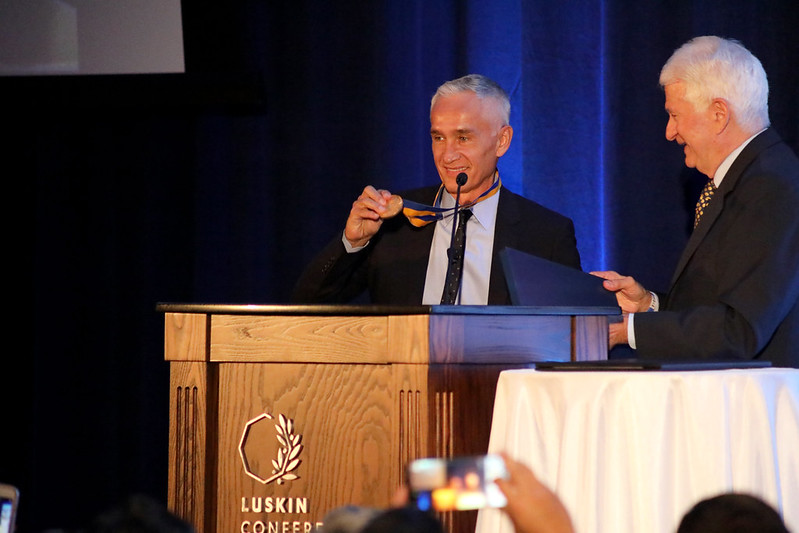
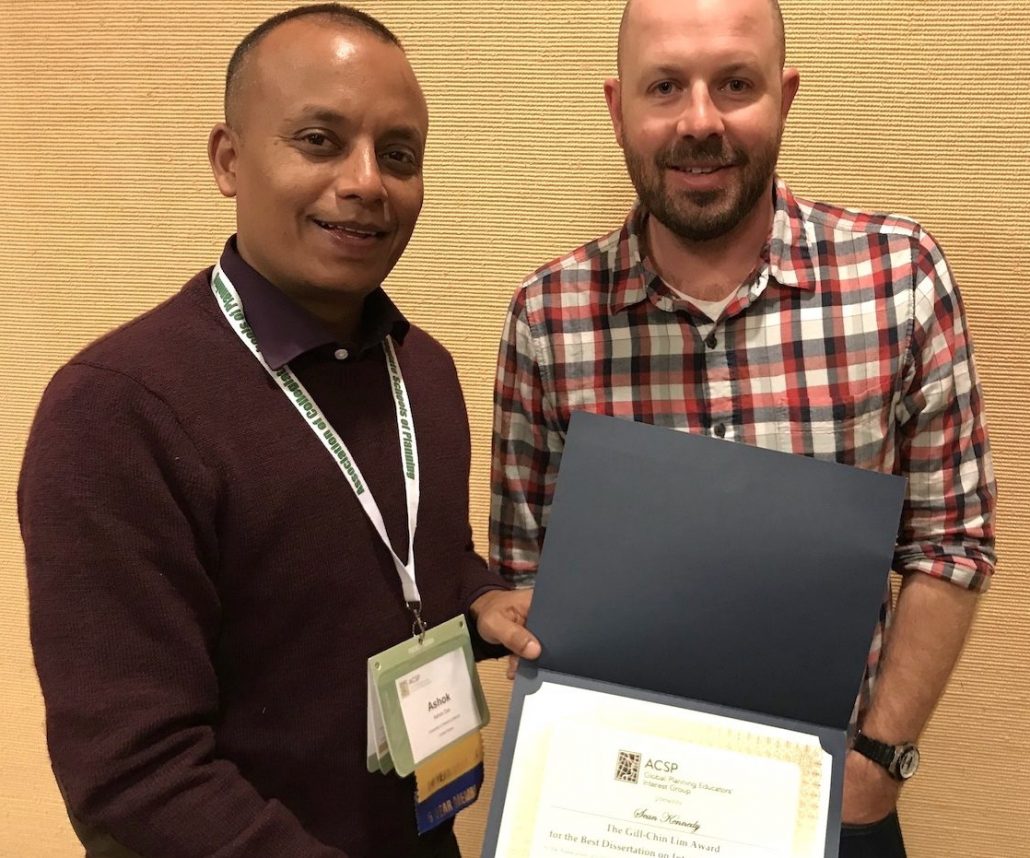
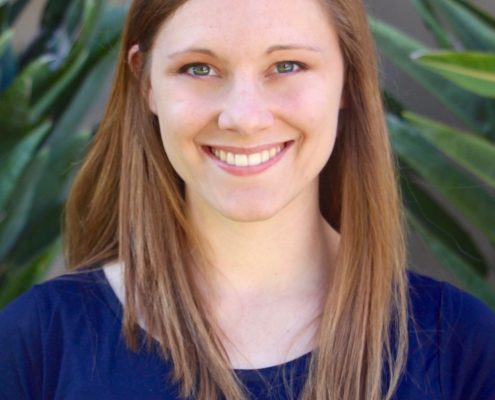
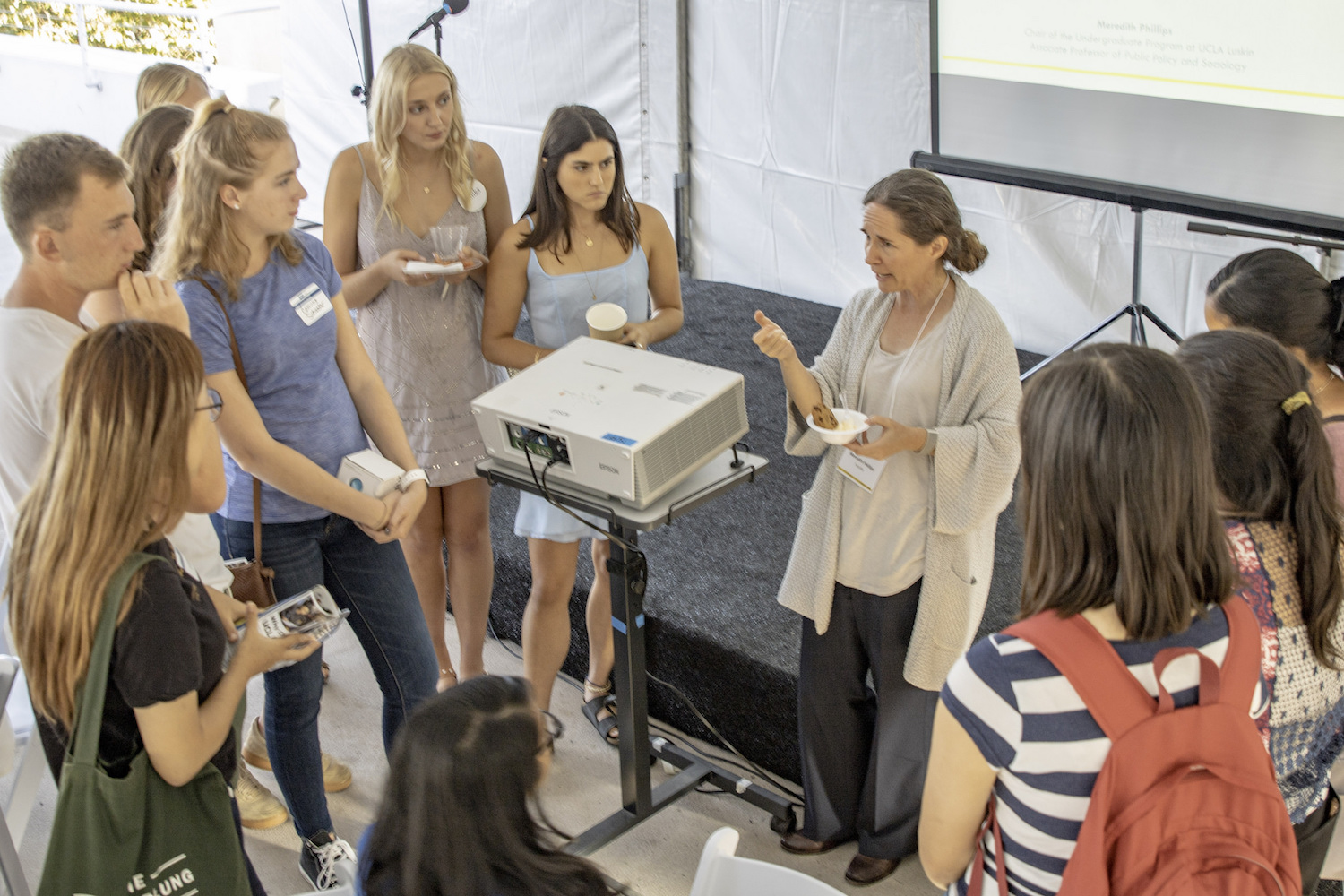
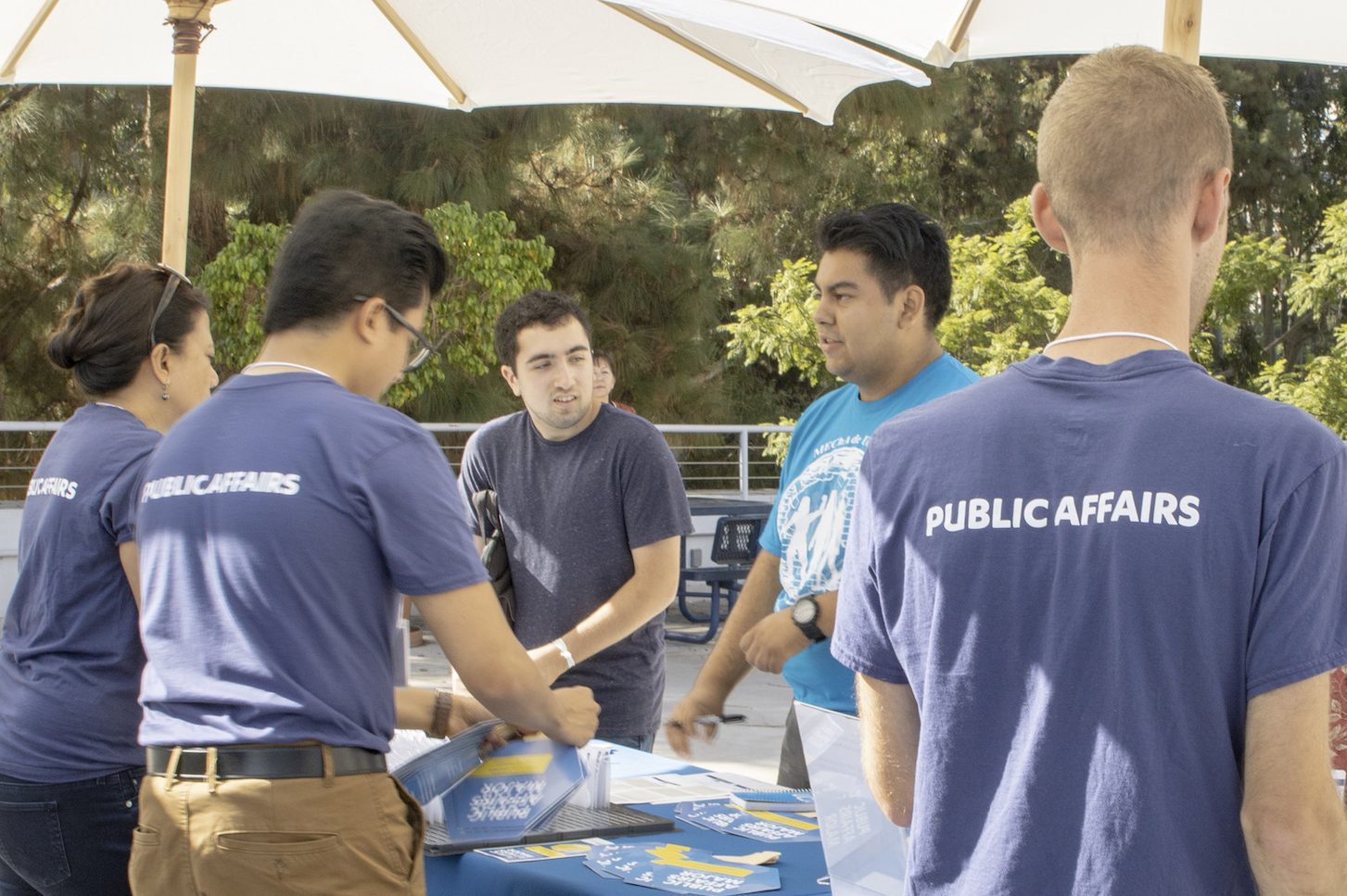
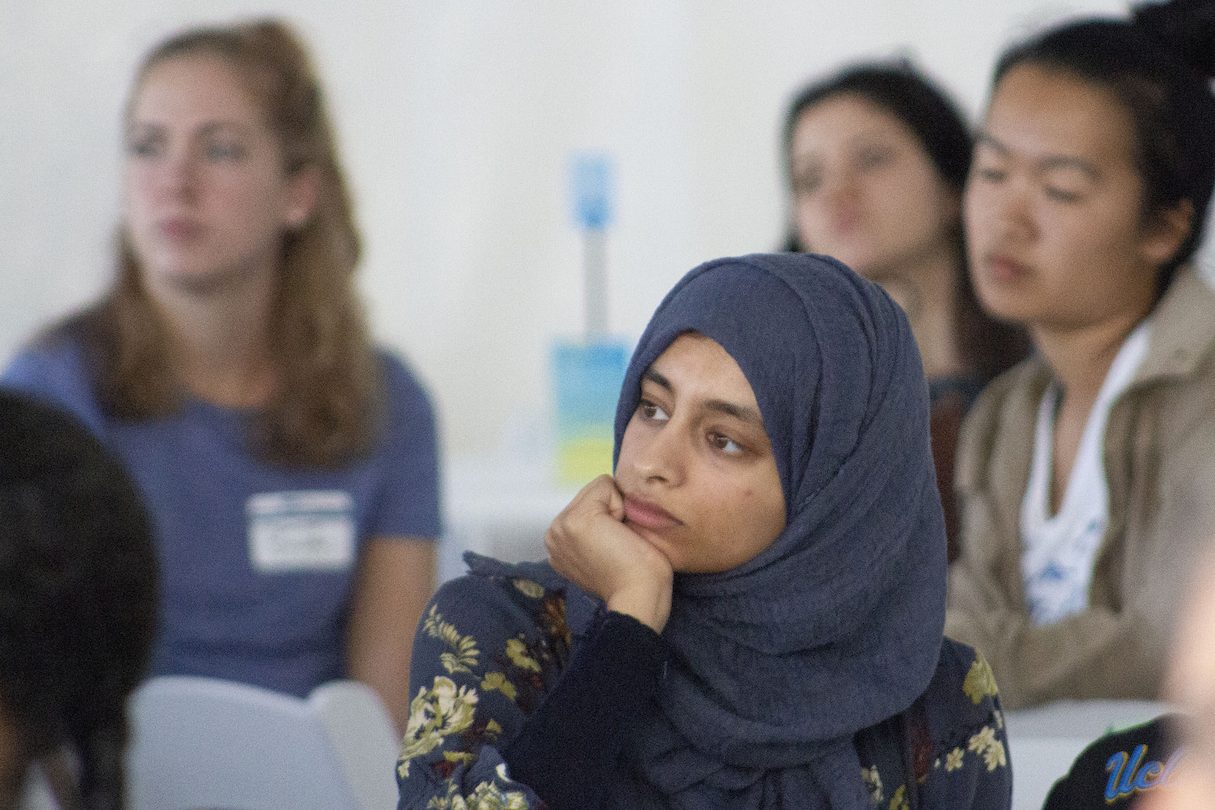
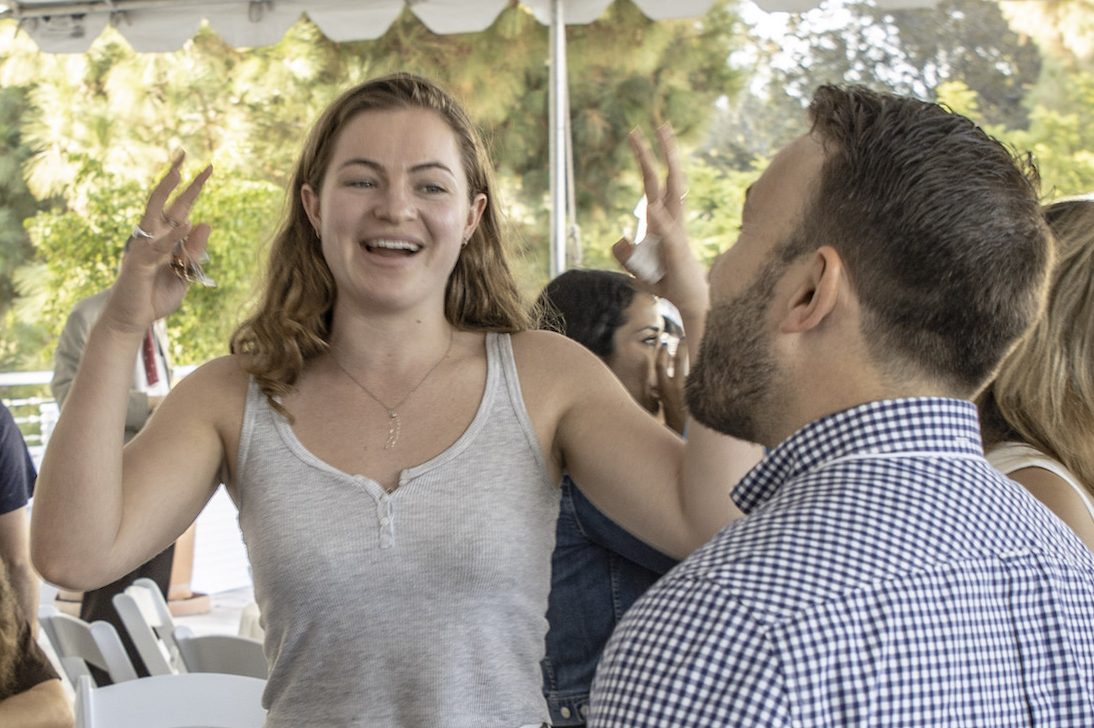
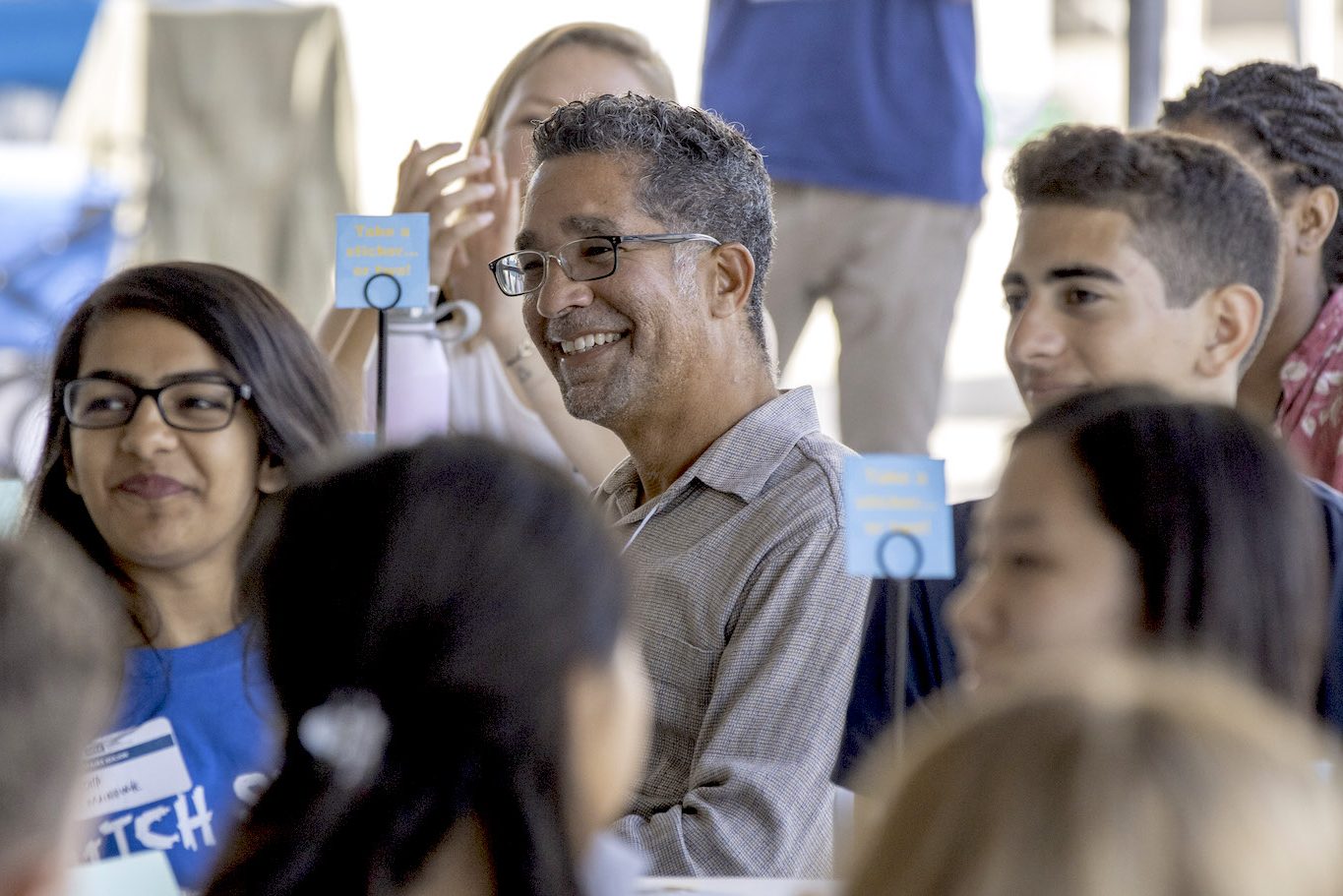
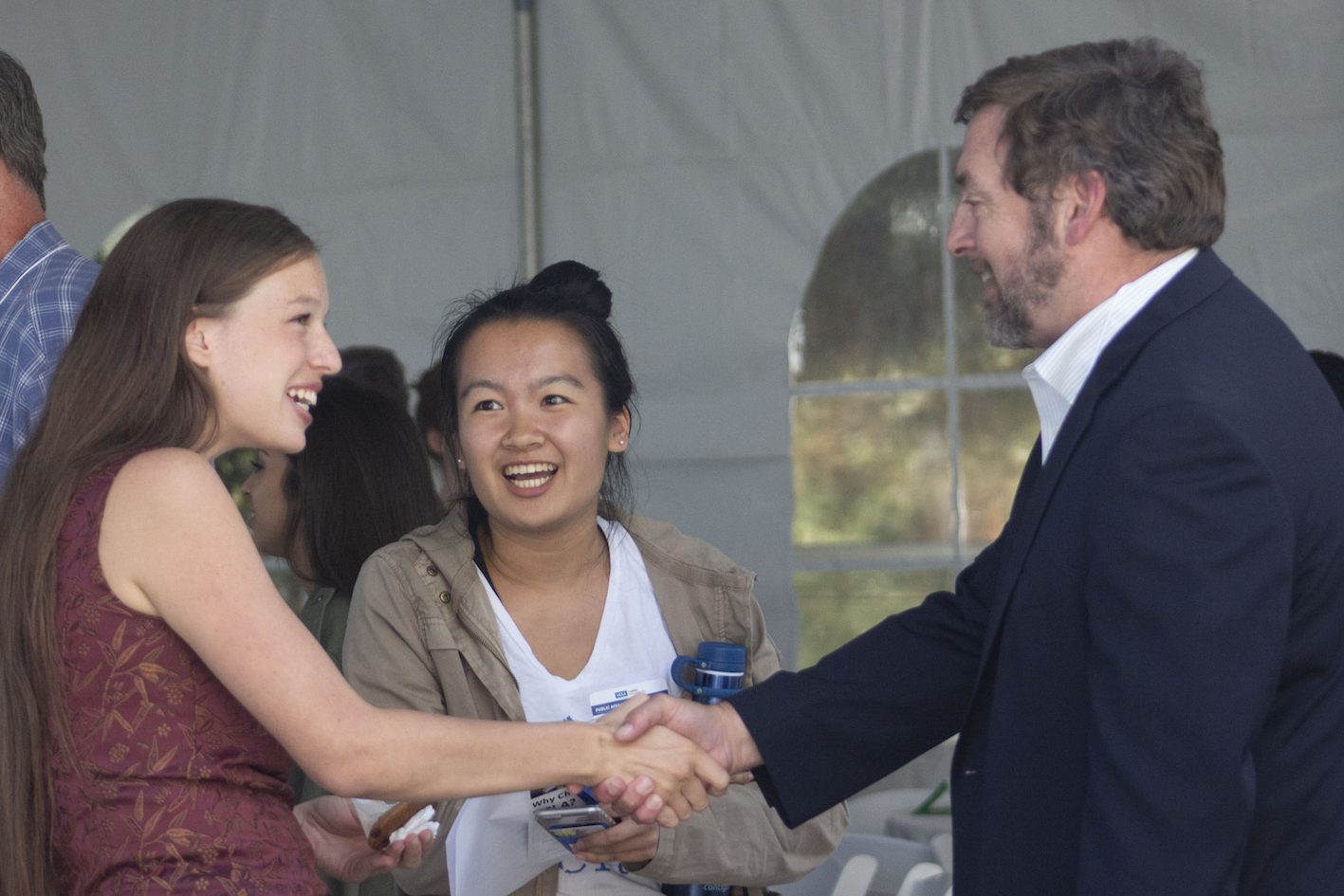
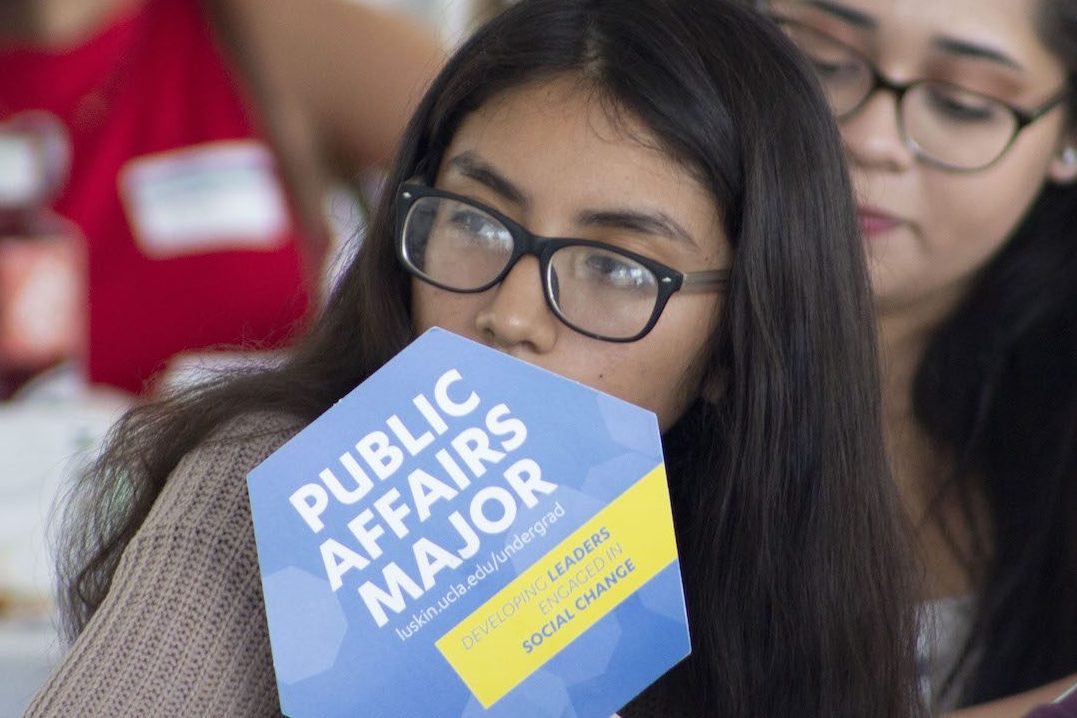
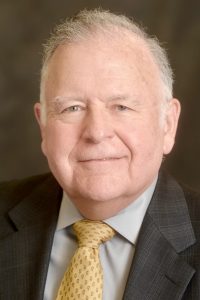

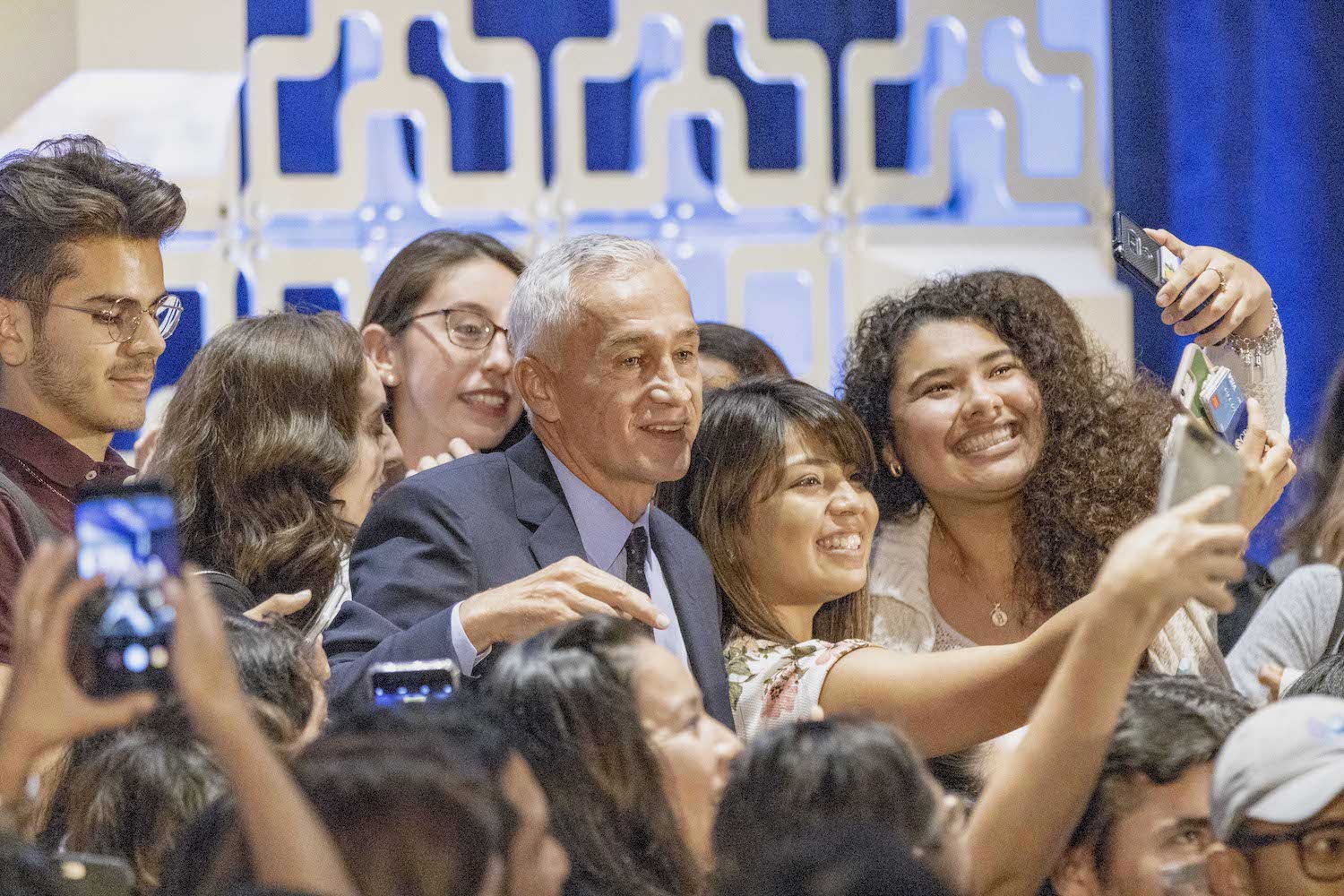
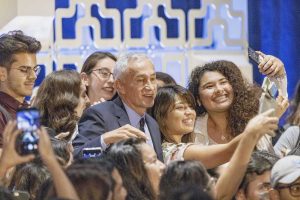
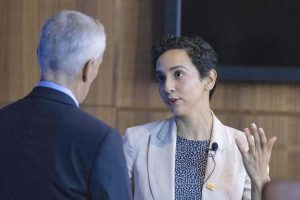
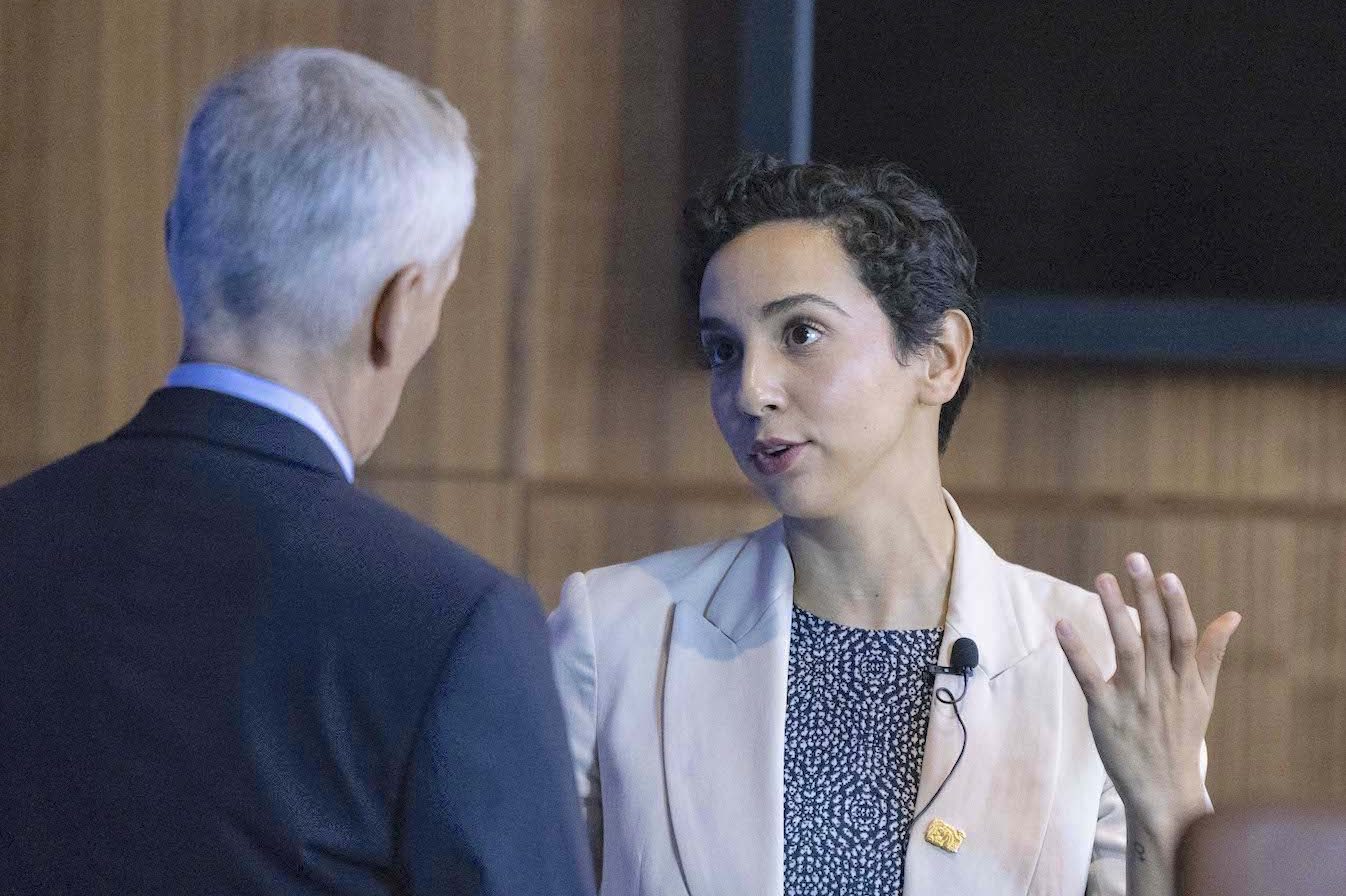
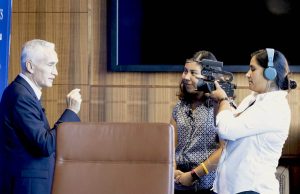
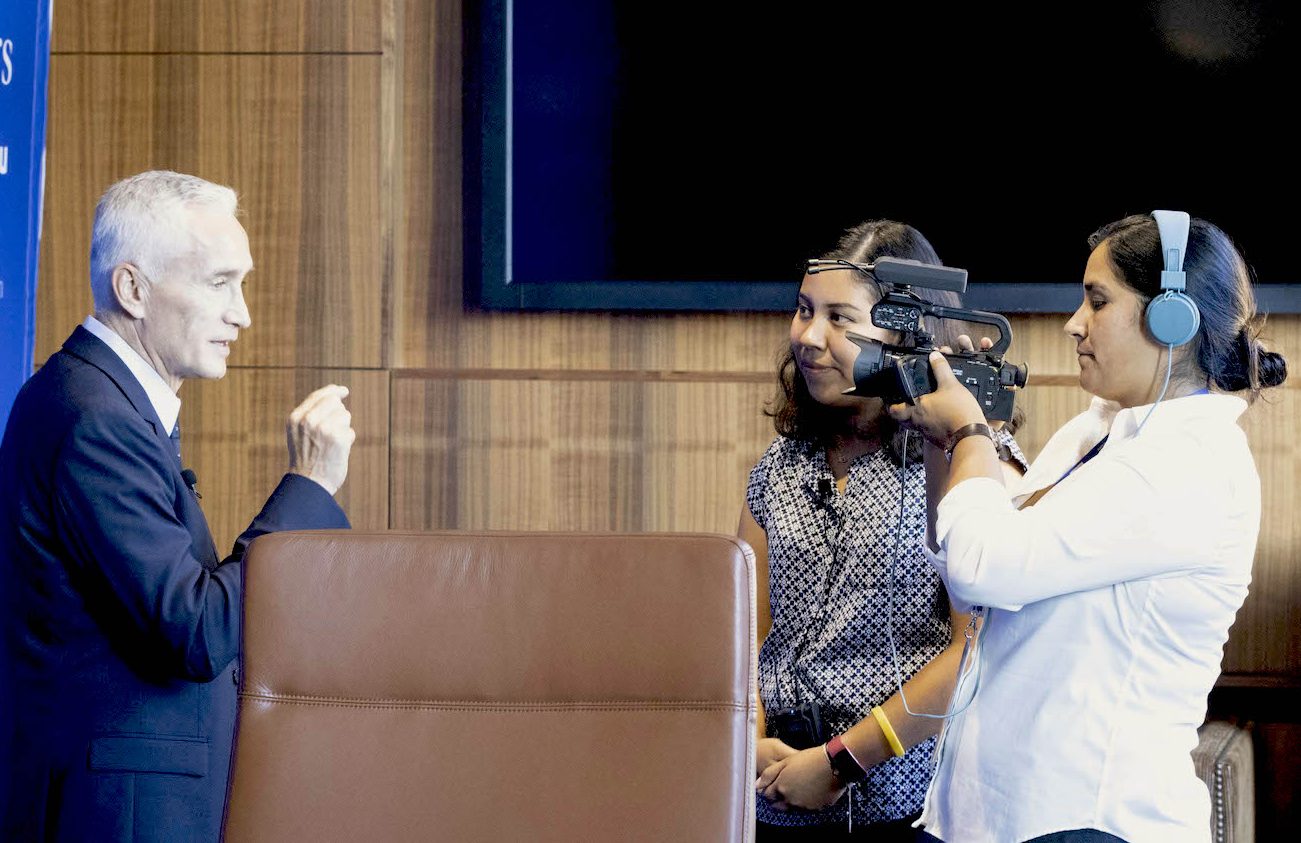
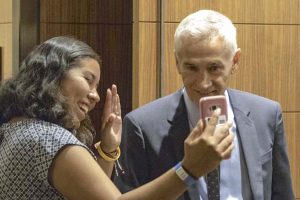
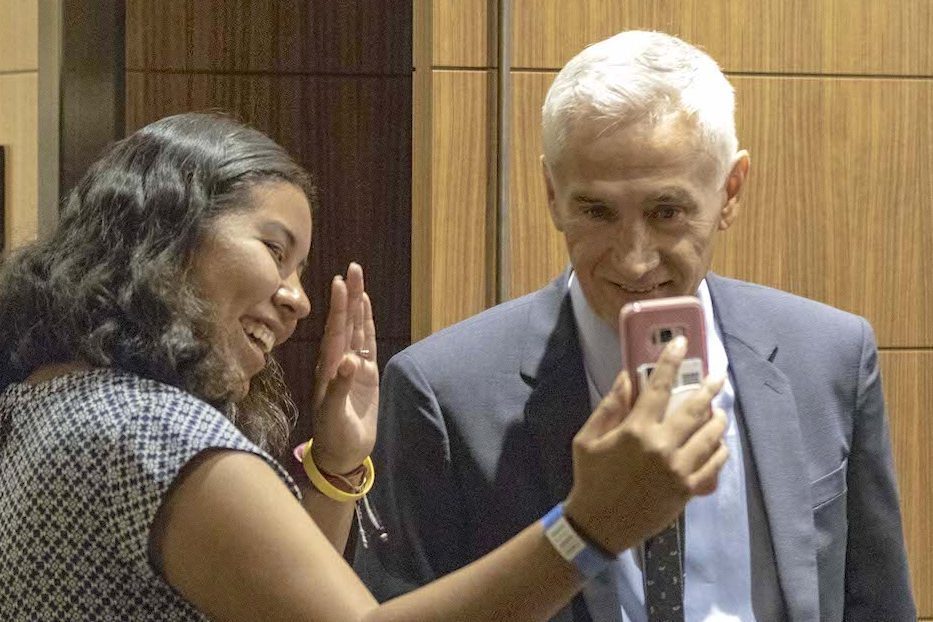
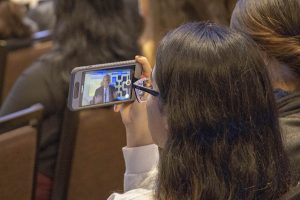
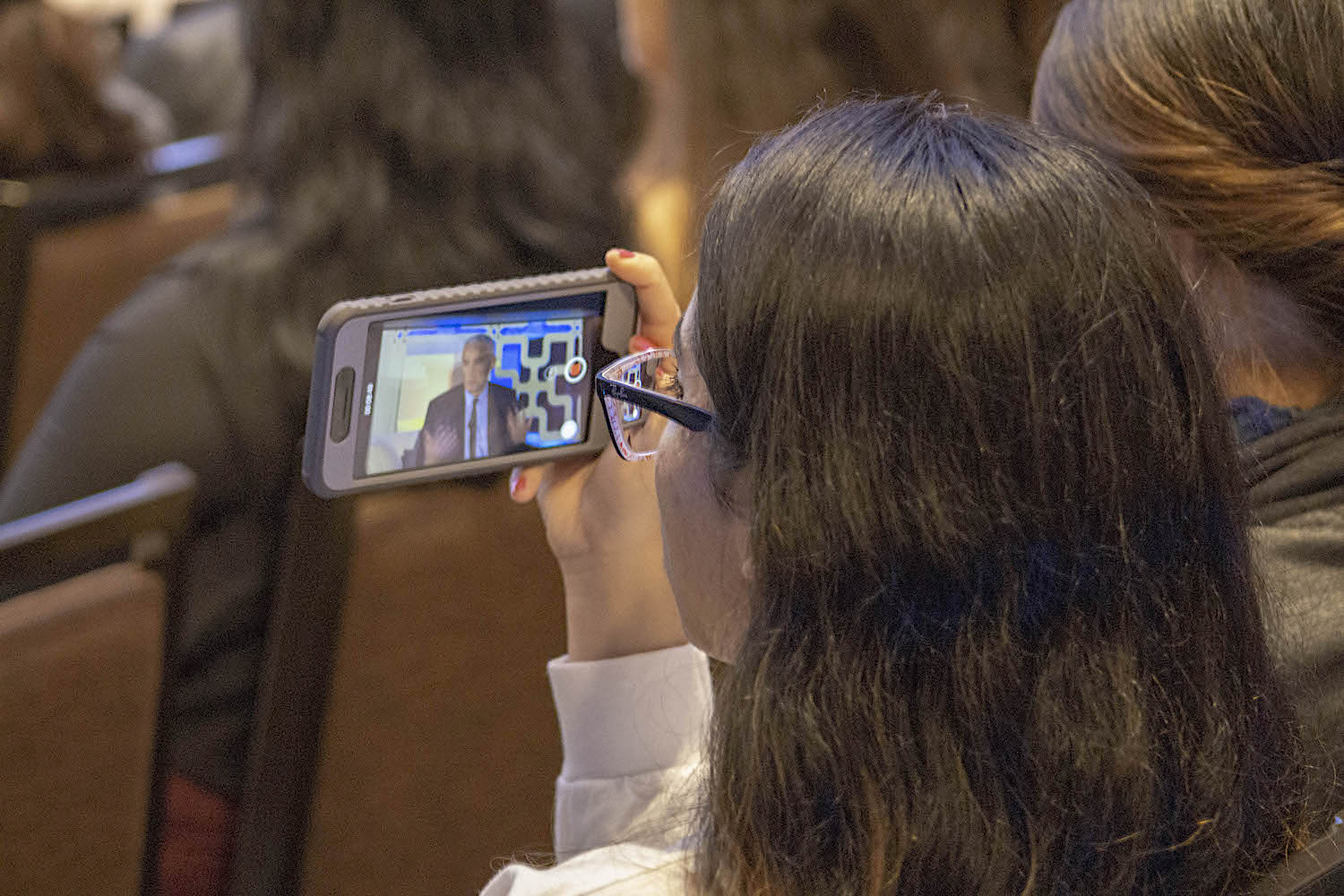
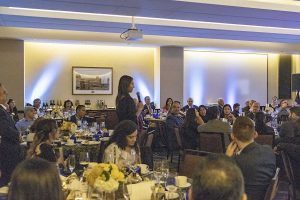
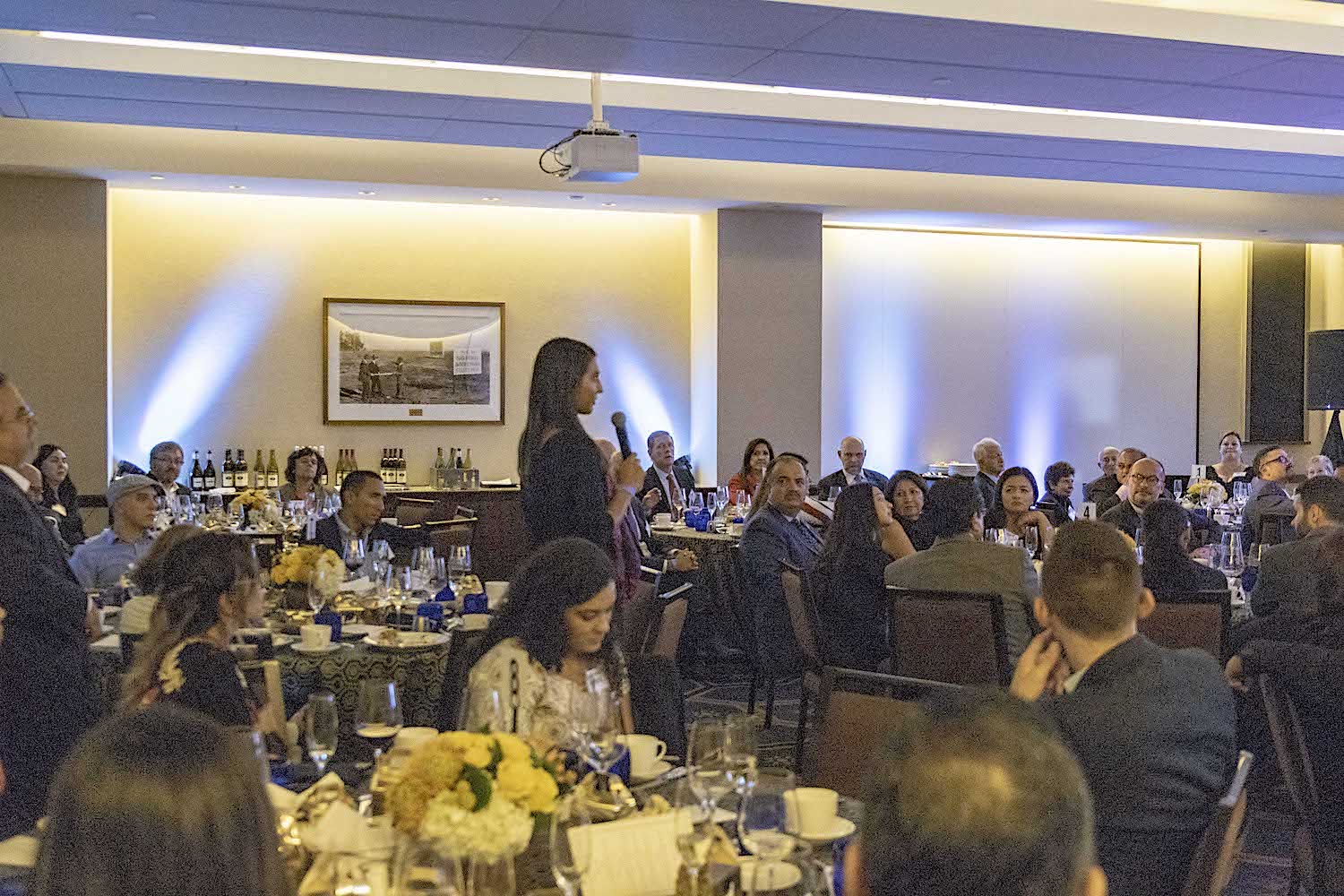

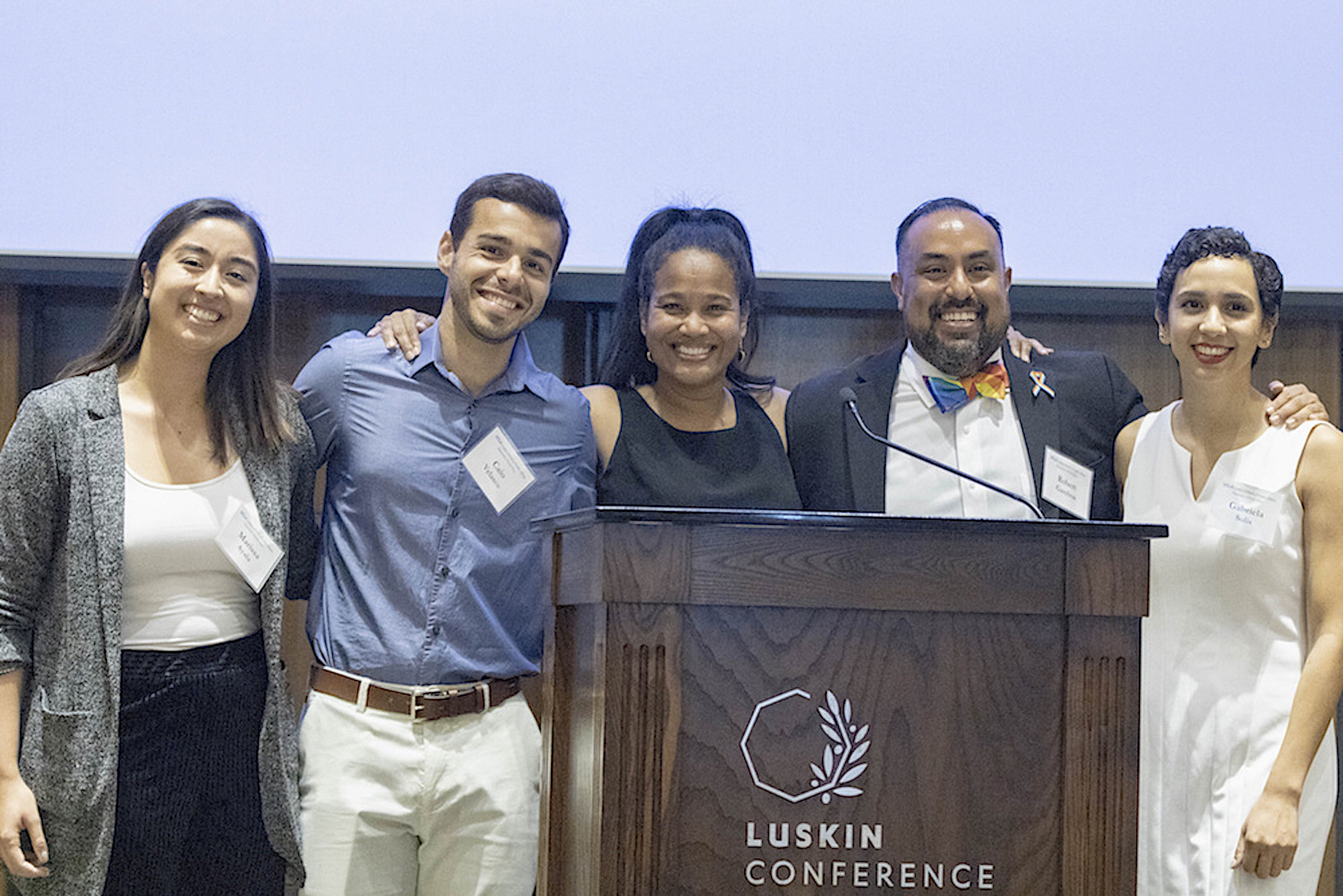
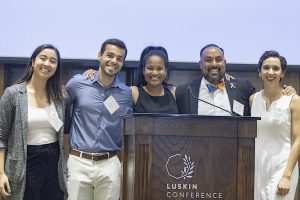
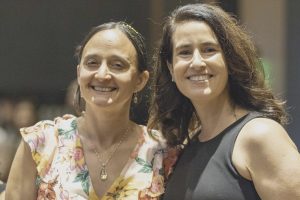
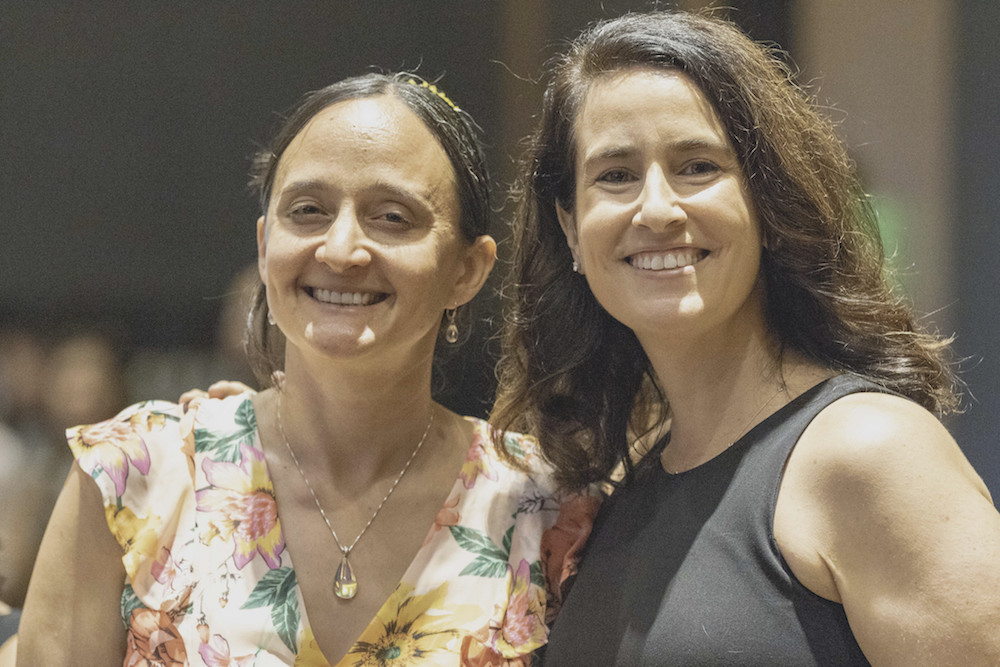
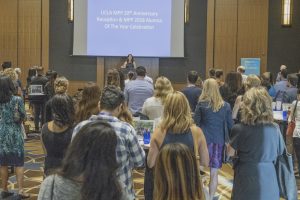
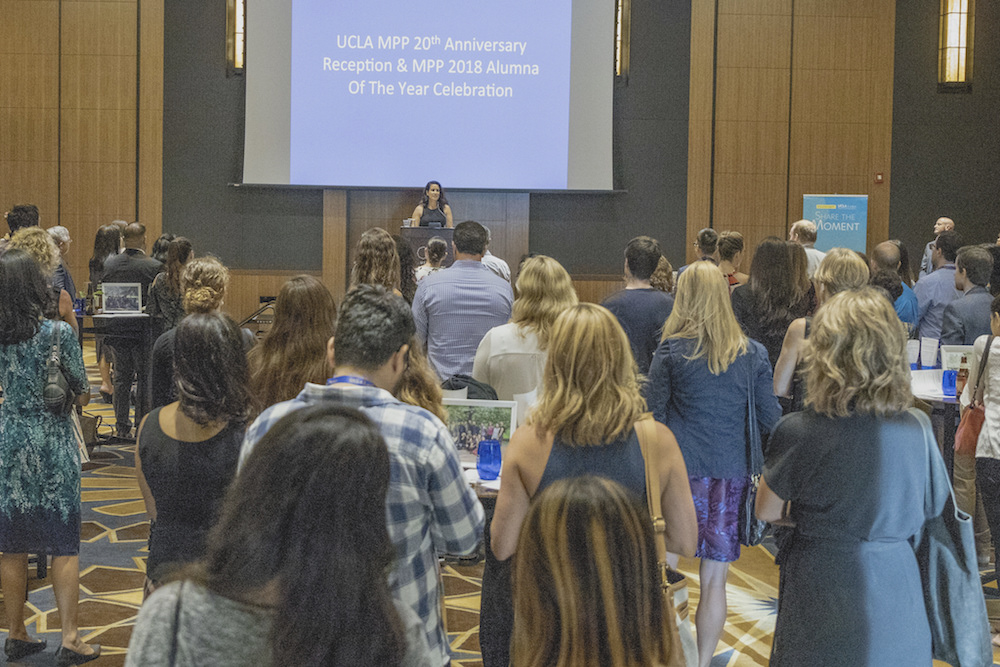
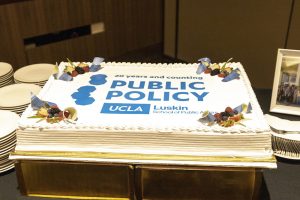
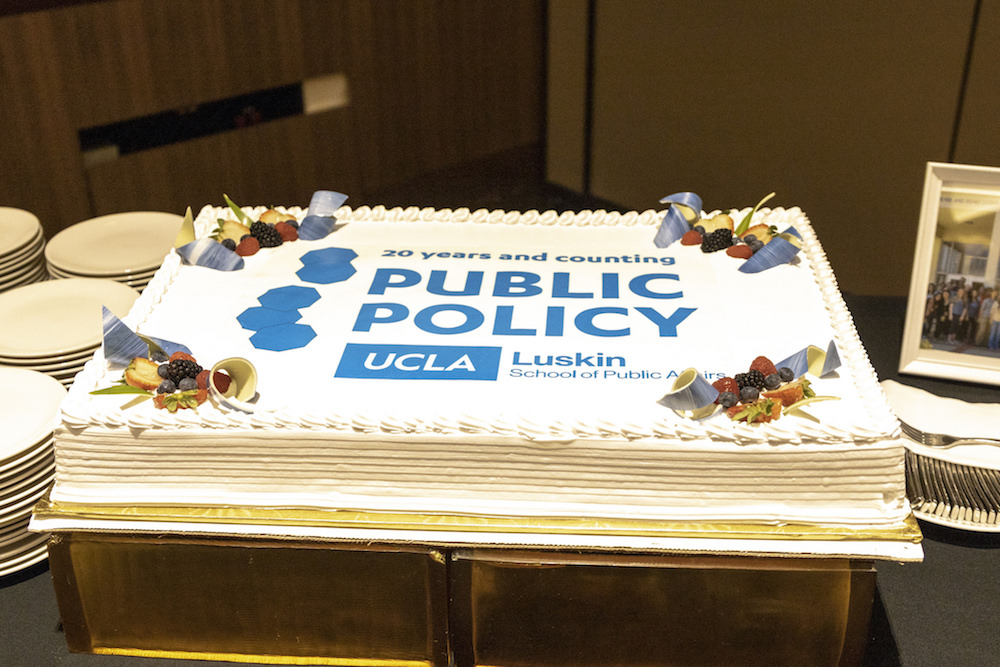
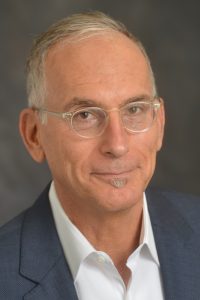 The U.S. Department of Health and Human Services has named UCLA Luskin Professor of Social Welfare
The U.S. Department of Health and Human Services has named UCLA Luskin Professor of Social Welfare 